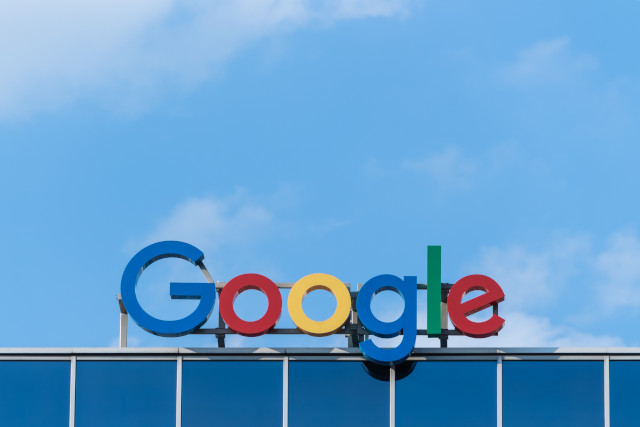
The walls are starting to close in on Google. Rumors of an anti-trust lawsuit have been brewing for months. William Barr and the Department of Justice have been making claims in the press this week that actions will happen soon and that States may join their case or start their own for other infractions.
Gartner produced reports that IT spending will be down $300B this year due to COVID. But not for some companies as Microsoft, Uber, and Facebook are continuing to purchase companies like Grubhub and Giphy.
Acquisitions/Investments
- Microsoft acquires Metaswitch in telecom push
The move shows Microsoft’s efforts to target a single industry through inorganic deals rather than building expertise and technology in house. These efforts could help Microsoft gain further adoption of its Azure public cloud, which challenges market leader Amazon Web Services.
“The convergence of cloud and communication networks presents a unique opportunity for Microsoft to serve operators globally via continued investment in Azure, adding additional depth to our hyperscale cloud infrastructure with the specialized software required to run virtualized communication functions, applications and networks,” Yousef Khalidi, a Microsoft corporate vice president, wrote in a blog post.
Metaswitch has a 5G product for handling network traffic that can run on public cloud infrastructure. Customers could rely on the company’s software atop cloud infrastructure rather than adding capacity in their own data centers to support additional network use at higher speeds.
https://www.cnbc.com/2020/05/14/microsoft-acquires-metaswitch-in-telecom-push.html
- Restaurants should fear an Uber-Grubhub merger
Companies like Uber, which dispatch contracted drivers and cyclists to pick up and deliver food from local and chain restaurants, have faced a wave of new criticism during the pandemic over their substantial markups and the steep revenue cuts they take from restaurants. Consolidating Uber and Grubhub would narrow an already-narrowed field, after GrubHub acquired Seamless and Eat24 and DoorDash bought Caviar. Meanwhile, delivery fees have generally been on the rise, and with less competition there would presumably be less pressure on Uber to compete for dollars from hungry shoppers.
If the deal comes through, it will likely attract scrutiny from progressive Democrats. At the end of April, Senator Elizabeth Warren of Massachusetts and Representative Alexandria Ocasio-Cortez of New York proposed the Pandemic Anti-Monopoly Act, a bill that would pause large mergers and acquisitions until “small businesses, workers, and consumers are no longer under severe financial distress.”
https://www.fastcompany.com/90504454/restaurants-should-fear-an-uber-grubhub-merger
- Facebook Buys Giphy, Will Make It Part of Instagram Operations
Facebook said the graphics interchange format, or GIF, platform will be part of the company’s Instagram operations but didn’t disclose the terms of the deal. Facebook—which said its apps make up half of Giphy’s traffic—is going to “further integrate their GIF library into Instagram and our other apps.”
Facebook also said Giphy will keep running its library of GIFs and digital stickers.
News site Axios reported Facebook agreed to buy the GIF platform for around $400 million.
Software/SaaS
- Microsoft makes OneDrive multi-page scanning available to all for free
With so many people now working from home, few of us have access to office equipment like printers and scanners. Scanning documents from home, or outside the office, should be easy. Microsoft OneDrive has long offered a free scanning feature from the OneDrive mobile app which lets you scan and digitize single documents, receipts and more. Up until now, scanning multiple pages and saving them as single document was a premium feature that required a Microsoft 365 subscription. Today we’re making multi-page scanning available for everyone using a OneDrive personal account.
https://mspoweruser.com/microsoft-makes-onedrive-multi-page-scanning-available-to-all-for-free/
- Chrome will start blocking resource-demanding ads in August
Google has discovered that a small percentage of ads (0.3 percent) are using a disproportionate amount (27 percent) of the network data used by ads in Chrome. These resource-demanding ads can drain battery life, saturate already strained networks and cost money, Google wrote in a blog post. So beginning this summer, Google will cap the resources a display ad can use in Chrome in order to protect users’ batteries and data plans.
Chrome will set a threshold at 4MB of network data, 15 seconds of CPU usage in any 30-second period or 60 seconds of total CPU usage. If an ad reaches its limit before a user interacts with it, the ad frame will navigate to an error page and inform the user that the ad has used too many resources.
Google plans to experiment with the feature over the next several months and to introduce it near the end of August. This should give ad creators and tool providers time to adapt.
https://www.engadget.com/google-chrome-block-resource-heavy-ads-190622725.html
Infrastructure/Hardware
- Gartner Predicts IT Spending Will Plummet By $300 Billion In 2020 As CIOs Slash Budgets
Gartner’s estimate is the latest in a series of predictions by research firms that have become more and more pessimistic as the crisis has deepened. Last month, Enterprise Technology Research (ETR), which regularly polls IT leaders about their spending intentions, came up with a forecast suggesting a drop of around 5% in global spend for 2020. In the latter part of March, the feedback ETR had been getting from executives suggested spending would be flat year-on-year.
While some companies are cutting big IT projects altogether, others are ploughing ahead but delaying some elements of their plans to save money. During an earnings call in April, Hershey CEO Michele Buck revealed the confectionery giant has paused parts of a new enterprise resource planning (ERP) system. It plans to advance with finance and data work streams but will delay supply chain and order-to-cash ones—moves that will push out full implementation of the ERP system by a year or so. On the same call, Hershey’s CFO said the company’s capital spending would be between $400 million and $450 million in 2020 versus an estimate of $500 million it had released in January.
- U.S. Moves to Cut Off Chip Supplies to Huawei
The restrictions stop foreign semiconductor manufacturers whose operations use U.S. software and technology from shipping products to Huawei without first getting a license from U.S. officials, essentially giving the U.S. Commerce Department a veto over the kinds of technology that Huawei can use.
Under the new rules, the department can block the sale of semiconductors manufactured by Taiwan Semiconductor Manufacturing Co., for Huawei’s HiSilicon unit, which designs chips for the company, as well as chips and other software produced by manufacturing facilities in China and South Korea, which use American chip-making technology. The Commerce Department already had the ability to license software shipments from U.S.-based facilities.
https://www.wsj.com/articles/u-s-moves-to-cut-off-chip-supplies-to-huawei-11589545335
Other
- Justice Department, State Attorneys General Likely to Bring Antitrust Lawsuits Against Google
Much of the states’ investigation has focused on Google’s online advertising business. The company owns the dominant tool at every link in the complex chain between online publishers and advertisers. The Justice Department likewise is making Google’s ad technology one of its points of emphasis. But it is also focusing more broadly on concerns that Google uses its dominant search business to stifle competition, people familiar with the matter said.
Details about the Justice Department’s legal theories for a case against Google couldn’t be learned.
Though the coronavirus pandemic has complicated work for the Justice Department, Attorney General William Barrhas devoted considerable resources to the Google probe and continues to treat it as a top priority. Mr. Barr told The Wall Street Journal in March that he wanted the Justice Department to make a final call this summer. “I’m hoping that we bring it to fruition early summer,” Mr. Barr said at the time. “And by fruition I mean, decision time.”
- A seventh Amazon employee dies of COVID-19 as the company refuses to say how many are sick
Amazon has instituted new safety measures, including temperature checks, face masks, and increased cleaning. “Our top concern is ensuring the health and safety of our employees, and we expect to invest approximately $4 billion from April to June on COVID-related initiatives to get products to customers and keep employees safe,” the company said in a statement. The company also says infection rates at its warehouses are at or below the rates in the communities where they are located.
But workers at IND8 and elsewhere say cleaning has been uneven and conditions are often too crowded to allow for proper social distancing. Many worry that recent policy changes put them at greater risk. This month, Amazon reversed a policy it instituted at the onset of the pandemic that allowed workers to take unlimited time off without pay. (Amazon is set to end another coronavirus policy, an additional $2 per hour of hazard pay, on June 1st.) The leave policy had allowed workers who feared for their safety — and could afford to go without a paycheck — to stay home without being fired for overdrawing their quarterly allotment of 20 hours of unpaid time off. When the policy ended on May 1st, workers say their facilities became far more crowded.
“Before we had the unlimited UPT [unpaid time off] so if people didn’t feel safe, they didn’t have to come to work,” said a worker at IND8. “When that went away, we went from having one hundred twenty five people back to four to five hundred people per shift. It’s really crowded.”
https://www.theverge.com/2020/5/14/21259474/amazon-warehouse-worker-death-indiana
- Eric Schmidt reportedly left Google in February
Schmidt hasn’t had a leading role at Google or Alphabet for a while. He left Google’s CEO role in 2011, and bowed out as Alphabet’s executive chairman in 2017 before departing the company’s board in 2019. An exit may have been more of a formality, especially as Schmidt was said to have made $1 per year as an advisor.
Still, it’s the end of an era. Schmidt ran Google during its rapid growth from a search startup to a tech colossus that branched out into smartphones, email and numerous other fields. Sergey Brin and Larry Page hired him to offer Google serious business credibility and leadership, and to that extent he succeeded.
https://www.engadget.com/eric-schmidt-leaves-google-201819195.html




 None this week
None this week



